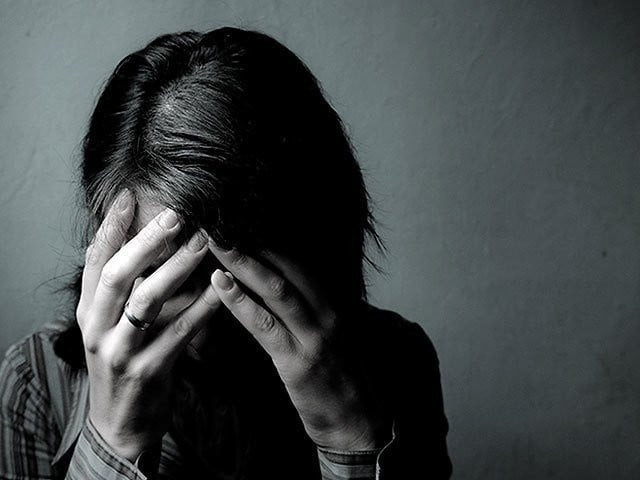Young patients left adrift without mental health support
Many continue to suffer due to a lack of awareness and acceptance

Amidst social pressures, academic rivalry, and economic hardships, many young individuals in Pakistan are quietly struggling with a growing mental health crisis. Statistics reveal a significant prevalence of mental health issues among children, with studies indicating that many of these conditions go undiagnosed until the age of 14.
Take the case of Rida’s brother. At just 15, he sought solace in alcohol to escape the turmoil of a household engulfed in relentless financial strain, where each day brought new challenges and uncertainties. The weight of responsibility and the constant worry about making ends meet took a heavy toll on him, plunging him into a dark spiral of despair. His story epitomizes a larger reality: in a nation where mental health remains taboo, countless children like him are left adrift without the dedicated support they desperately need.
“Now, when I look back at what my brother went through, I feel sorry for him. Our parents were not sensitive to his psychological issues and were instead abusive towards him. When children feel unheard and are constantly threatened by parents, their mental health is definitely hampered,” recalled Rida, a local from Karachi, who urged parents to adopt a more compassionate parenting style.
Speaking of a lack of awareness among parents, take the case of seven-year-old Shayan Khan from Peshawar, who was spotted with his father at a faith healer’s clinic. “Since the past month, my son has become very irritable and refuses to talk to anyone. We took him to various hospitals, but he could not get proper treatment. Our last resort was the spiritual healer,” grievingly confessed Shayan’s father, who, albeit acknowledging his disbelief in the veracity of faith healers, had no other option to turn to for help.
Limited or no facilities
State-owned hospitals nationwide are often constrained by limited resources, a situation that extends to the area of mental health care. Details gathered by The Express Tribune show that many of these government-funded health facilities lack specialized services focused on addressing mental health concerns.
In Karachi, the southern port city, none of the state-owned hospitals offer dedicated services for diagnosing, treating, or raising awareness about the increasing prevalence of mental health disorders among children.
Despite the recent restoration of the Child Family Psychiatric Department at Lahore’s Mayo Hospital, many children still lack access to vital psychological support, largely due to persistent social stigma and lack of awareness.
In K-P, despite the passage of a 2017 bill by the K-P Assembly aimed at establishing a comprehensive psychological healthcare system for all citizens, including children, progress remains disappointingly slow. Dr Sultan Muhammad, former Chairman of the Psychiatry Department at Khyber Teaching Hospital in Peshawar, disclosed that not a single dedicated pediatric psychiatry facility operates across the province’s 37 districts, despite an overall population exceeding 40 million people.
According to Zakir Khan, a social activist, a significant number of parents in Peshawar resort to alternative measures such as incantation prayers by faith healers, as there is a notable absence of psychological support services for children in the area.
Lack of awareness
The World Health Organization (WHO) and the American Psychiatric Association (APA) report that nearly 10 per cent of children globally grapple with mental health issues, including depression, anxiety, and behavioral disorders, hampering their social and emotional development. In Pakistan, data from Mayo Hospital's Child Psychiatric Department in Lahore indicates that between 15 to 20 per cent of children suffer from mental health conditions, often undiagnosed until they reach 14 years old. These statistics are unsurprising in a country where mental health remains deeply stigmatized, even among adults.
Dr Afridi from Karachi’s Jinnah Hospital highlighted the absence of national-level policies addressing children's psychological issues, contributing to the lack of awareness surrounding children's mental health. He emphasized the importance of dedicated mental health facilities for addressing children's psychological concerns, lamenting the current lack of attention given to the matter. Dr Afridi also underscored the role of poor parenting styles in exacerbating mental health issues among youngsters, emphasizing the need for parents to monitor their children's diet, sleep patterns, physical activity, and academic performance to prevent such conditions. He further noted that children exposed to such neglect are at risk of developing substance addictions.
"Mental illnesses, such as anxiety and depression, are on the rise among children due to various factors including household poverty, family conflicts, academic pressure, and social media,” said Dr Nazish Imran, Head of the Child Psychiatric Department at Mayo Hospital in Lahore. Dr Rafia Rafique, a health psychologist in Lahore, echoed these sentiments, adding that besides depression and anxiety, children in Pakistan also grapple with conditions like attention-deficit hyperactivity disorder (ADHD), characterized by difficulty paying attention, restlessness, and irresponsible behavior. Dr Nazish expressed concern over parents' lack of awareness about such mental health conditions, often resorting to superstitions or seeking treatment from faith healers.
Resorting to drugs
Commenting on the adverse effects of stressful home environments on mental well-being, Dr Rafia Rafique, a clinical psychologist, highlighted the psychological ramifications of aggressive parenting styles prevalent in most households. “The excessive use of physical discipline at home is worrisome as it can exacerbate anxiety, depression, substance abuse, and antisocial behaviors. Additionally, children subjected to consistent physical punishment from parents may experience diminished cognitive abilities, struggle with self-esteem, and underperform academically,” cautioned Dr Rafia.
Syed Zulfiqar Hussain, an anti-narcotics consultant from Lahore, asserts that the surge in drug use among the youth in Pakistan stems from untreated mental health issues. “The youth perceive drugs as a means of escaping from stressful environments, whether it's within their educational institutions or their homes,” stated Hussain.


















COMMENTS
Comments are moderated and generally will be posted if they are on-topic and not abusive.
For more information, please see our Comments FAQ